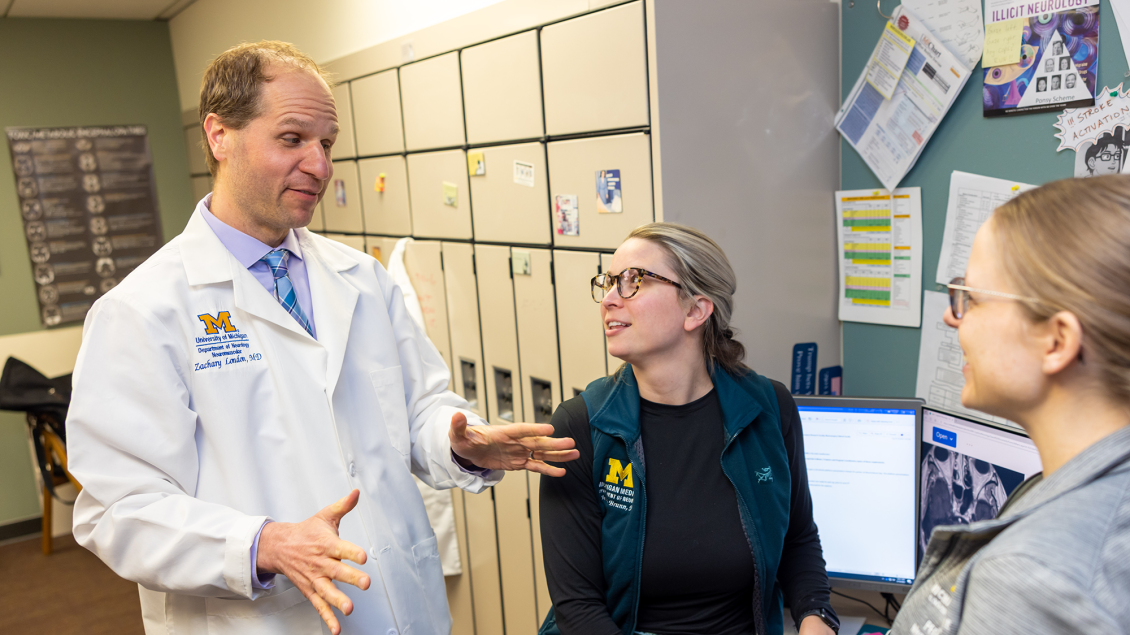
Administrative Research Support
So you can focus on your research.
Clinical Trials Support Units (CTSUs) are business units that partner with investigators and their teams to ensure the timely and efficient activation and execution of clinical trials at Michigan Medicine.
The CTSUs allow investigators to focus on their research and patients, instead of administrative tasks. CTSUs use a standard set of work guides to harmonize elements across the clinical research enterprise while allowing for local flexibility to reflect the uniqueness of various types of research.
At Michigan Medicine, all NIH-defined clinical trials and clinical research that has a billing calendar are required to be supported by a CTSU. CTSUs provide mandatory pre-/post-award support and optional study coordinator support.
When working with the Support Units, non-oncology studies are supported by the M-CTSU, and oncology studies are supported by the O-CTSU.
Through joint collaboration, the CTSU Medical Directors provide oversight of the CTSUs and offer a faculty perspective on CTSU operations. The M-CTSU Medical Director role reports to the Assistant Dean for Clinical Research.

Professor, Internal Medicine - Rheumatology

Clinical Professor, Internal Medicine - Hematology/Oncology

Clinical Assistant Professor, Dermatology
CTSU Portfolio Managers assist study teams with navigating the Pre-Award process to facilitate timely study activation and also track the project throughout its life offering a consistent line of communication between the CTSU, study team, and partner units to keep studies on track.
Following "Feasibility Approval", the Portfolio Manager will contact study teams to schedule a study planning meeting where all parties come together to discuss the protocol, billing calendar, budget, study logistics, and expectations.
Specific Pre-Award services include, but are not limited to:
- Feasibility Review
- Facilitation of Billing Calendar Creation
- Budget Preparation and Negotiation
- Contracting Support
- Shepherding
Similarly, following an executed contract and award, Post-Award services include, but are not limited to:
- Account Reconciliation
- Milestone Tracking
- Invoicing
- Financial Reporting
As a trial moves into Post-Award, investigators will be contacted by their CTSU Post-Award Finance contact to schedule a quarterly meeting to discuss their portfolio and review CTSU reports. These reports provide a comprehensive snapshot of financial activities that allow investigators to adjust and plan for the future of their study. Investigators and department staff also have access to these reports via Tableau and receive a link on a monthly basis for viewing.
Questions? Contact your Portfolio Manager
See specific rates below.
M-CTSU rates reflect the administrative costs of providing researchers with financial support and portfolio coordination and have been reviewed and approved by the University’s Enterprise Financial Planning & Analysis Office.
For questions regarding M-CTSU fees, contact Tracey Naylor, Associate Director of Finance, at tstaples@umich.edu.
The rates below are effective after March 1, 2024.
The M-CTSU Institutional Startup Fee supports dedicated research administration personnel who perform required study-specific core functions required to activate the project with tasks that are independent of the trial's recruitment/enrollment requirements and is not supported by institutional indirect fees.
The M-CTSU provides clinical trial services to the University research community through services including, but not limited to: ensuring activation timelines are followed and met; reviewing core feasibility review; initiating billing calendar analysis; contracting support and collaboration; clinical trial contract and budget development and negotiation; site initiation support; support collaboration and engagement of key stakeholders on the project; and set-up and management of the Clinical Trial Management System (CTMS). This fee is charged when the award is issued.
All aspects of post-award services are handled by the M-CTSU for this project.
The M-CTSU Maintenance Fee supports dedicated research administration personnel who manage overall and day-to-day administrative and financial operations of clinical trials at U-M, reducing billing errors and allowing study teams to focus on research.
The M-CTSU provides clinical trial services to the entire University research community on a variety of platforms including, but not limited to: account and patient billing reconciliation; milestone tracking; billing settlement; Sponsor, State, and Federal financial reporting; and sponsor payable and receivable invoicing. This fee is charged monthly after startup until the final invoice is sent.
All aspects of post-award services are handled by the M-CTSU for this project.
The CTSU Closeout Fee provides for dedicated research administration personnel who manage study-specific closeout activities that may include, but are not limited to: facilitating outstanding discrepancies between sponsor and study team; verifying site activity completed by study team; verifying protocol-specific research pharmacy work completed and closed; verifying all study financial activity has occurred and closed; verifying final invoicing and payment has been completed; and complete internal processing of protocol specific closeout activities. This fee is charged following submission of the final invoice.
O-CTSU service rates vary by study complexity. For the most up-to-date information, contact CTSU-Oncology-Finance-PreAward@med.umich.edu.
A clinical trial is a research study in which one or more human subjects are prospectively assigned to one or more interventions (which may include placebo or other control) to evaluate the effects of those interventions on health-related biomedical or behavioral outcomes. Correctly identifying whether your study is a clinical trial is crucial in complying with NIH policies and Michigan Medicine.
If you answer yes to the following questions, then your study qualifies as a clinical trial:
- Does the study involve one or more human subjects?
- Does the study involve the use of one or more interventions?
- Does the study prospectively assign human subject(s) to an intervention(s)?
- Does the study have a health-related biomedical or behavioral outcome(s)?
Learn more about the NIH Clinical Trial Definition at grants.nih.gov, and see below for more helpful resources.